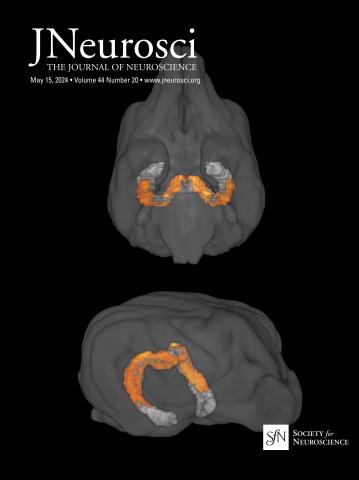微调细节:编码后的音乐对一般记忆和细节记忆的影响不同。
IF 4.4
2区 医学
Q1 NEUROSCIENCES
引用次数: 0
摘要
音乐可以有效地诱导情绪觉醒,这与压力激素的释放有关,压力激素对记忆的情绪调节很重要。因此,音乐可以作为记忆和情绪的强大调节剂,使其成为记忆和情绪障碍(如阿尔茨海默病或抑郁症)的有希望的治疗工具。然而,音乐对记忆的影响取决于它的特征、时间和引发情绪唤醒的能力。在当前的研究中,我们操纵了编码后记忆巩固期间播放的音乐的各种特征,以引发情绪唤醒并影响男性和女性的后续记忆。我们发现,编码后音乐诱发的情绪唤醒在基线上的大幅增加和适度减少导致了记忆中的要点与细节的权衡,一般记忆得到改善,但细节记忆受损,而从基线上的适度增加对应于细节记忆的改善,但一般记忆受损。重要的是,与对照组相比,音乐诱发的情绪唤醒对细节记忆的独特影响对支持情景记忆至关重要。这些发现表明,音乐干预并不会对记忆产生一致的影响,这对于为那些有记忆和情绪障碍的人开发个性化的音乐相关干预具有重要意义。音乐可能是调节记忆和情绪的有力工具,为阿尔茨海默氏症和抑郁症等疾病提供了治疗潜力。我们发现,音乐暴露后情绪唤醒的个体差异影响了一般记忆和详细记忆的表现。与对照组相比,音乐特别影响了细节记忆,突出了其针对特定记忆方面的潜力。这些发现表明,音乐干预可能不会统一地增强记忆,强调了治疗记忆和情绪障碍的个性化方法的必要性。本文章由计算机程序翻译,如有差异,请以英文原文为准。
Fine-tuning the details: post-encoding music differentially impacts general and detailed memory.
Music can effectively induce emotional arousal, which is associated with the release of stress hormones that are important for the emotional modulation of memory. Thus, music may serve as a powerful modulator of memory and mood, making it a promising therapeutic tool for memory and mood disorders such as Alzheimer's disease or depression. However, music's impact on memory depends on its features, timing, and ability to elicit emotional arousal. In the current study, we manipulated various features of music played during post-encoding memory consolidation to elicit emotional arousal and impact subsequent memory in men and women. We found that larger increases and moderate decreases in post-encoding music-induced emotional arousal from baseline resulted in gist vs. detail trade-offs in memory, with improved general memory but impaired detailed memory, while moderate increases in arousal from baseline corresponded to improved detailed memory, but impaired general memory. Importantly, relative to controls, music-induced emotional arousal demonstrated unique impacts on detailed memory that are crucial in supporting episodic memory. These findings suggest that music intervention does not uniformly impact memory and has important implications in developing personalized music-related interventions for those with memory and mood impairments.Significance Statement Music may be a powerful tool for modulating memory and mood, offering therapeutic potential for disorders like Alzheimer's and depression. We found that individual differences in emotional arousal following music exposure influenced both general memory and detailed memory performance. Compared to controls, music specifically impacted memory for details, highlighting its potential to target specific memory aspects. These findings suggest that music interventions may not uniformly enhance memory, emphasizing the need for personalized approaches in treating memory and mood impairments.
求助全文
通过发布文献求助,成功后即可免费获取论文全文。
去求助
来源期刊

Journal of Neuroscience
医学-神经科学
CiteScore
9.30
自引率
3.80%
发文量
1164
审稿时长
12 months
期刊介绍:
JNeurosci (ISSN 0270-6474) is an official journal of the Society for Neuroscience. It is published weekly by the Society, fifty weeks a year, one volume a year. JNeurosci publishes papers on a broad range of topics of general interest to those working on the nervous system. Authors now have an Open Choice option for their published articles
 求助内容:
求助内容: 应助结果提醒方式:
应助结果提醒方式:


